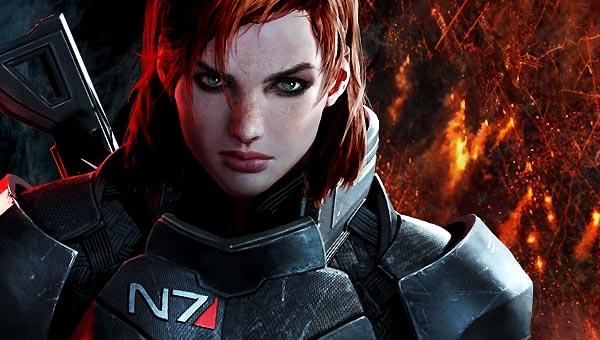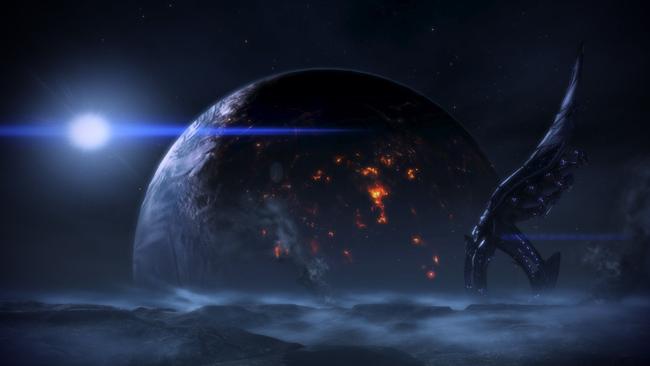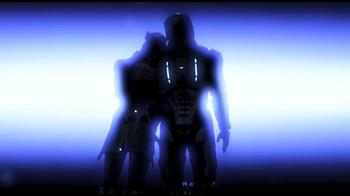
Choices and the Journey: On Mass Effect 3 and the worth of a finale
You will find there are few games in the medium that have received as much backlash as Mass Effect 3. Almost all of the negative response is derived from the ending, and how many fans felt it disregarded all the choices made over the course of the overarching narrative. With that in mind, I would argue that getting hung up on the ‘choice’ aspect is shortsighted because it does not really exist. Furthermore, while the choices presented in the finale may have been a bit sloppy, Bioware still presented them and did not rewrite a core tenant of the series at the 11th hour. It is often said that the conclusion of a story is not as important as the journey, but that is a half truth, because the finale is part of the journey too. The true test is whether or not the journey is worth embarking on in the first place.
The biggest hook for the Mass Effect series has been player choice, or at least it has been at the top of the billing list since long before the first game came out. Bioware promised that as you played through the trilogy all of your decisions would amalgamate in a finale that was wholly your own. More specifically, they inferred that the finale would be influenced by every little choice the player made throughout the trilogy. As we all know now, the actual final moments of Mass Effect 3 involve a standard A, B, or C choose-your-destiny pillar system which was certainly not what fans had hoped for. For many players, this was a betrayal and they were going to hold Bioware to their word. While I think it is fair to criticize the developer for some of the pre-release promises on player choice and how they could influence the story, we should also probably look at what choice actually means in games.

Choice, at least how it exists in games currently is very much an illusion. In a videogame you are always limited to the developer’s will, and everything in a game that plays out as a result of your decisions is there because the creator’s allowed it to happen. There is a big difference in how you go about making decisions in real life and whether or not you romanced Garrus or Thane. In your everyday life you are constantly making choices of your own free will, right down to what you put in your morning coffee. You are not limited to the will of a puppetmaster the way you are in something like Mass Effect. When I was a kid, I was really fond of RL Stine’s Goosebumps series, particularly the choose-your-own-adventure offshoots. It is the kind of literature that really helps kids get hooked on a novel and feel involved with the narrative, this time *you* get to decide how the story would play out. Making your audience feel like they are in charge is a good way to earn their trust, it makes them feel powerful. When you actually look at these stories however, they generally stop at the same end point because you aren’t actually controlling the narrative, the writer is. Videogames are the exact same way, the set dressing may change but the outcome really is not up to you.
Now all of this is not an epiphany by any stretch, but as it pertains to Mass Effect’s finale; should the critics firmly hang their hat Mass Effect 3 is a bad game because the ‘choices’ and how they played out were not to the audiences liking? Everyone is of course free to critique the ending in terms of the quality of the writing itself, but focusing solely on the choice aspect seems a bit shortsighted. One of the more discussed ‘choices’ in the series is whether or not Wrex survives the first game, as he is a much beloved character. How he grows and changes from the first game to the finale is a high point of the overarching narrative for sure. However, just how important to the actual plot is Wrex’s life? Not very, whether he live or dies, you are still going to be courting the Krogan to join the war effort against the Reapers and Mass Effect 2 and 3’s overall plot play out much the same way. Some will vehemently disagree with the notion that Wrex is interchangeable in the plot, but really it’s because they love they character, and that’s the important part.
Mass Effect’s biggest strength is not artificial choices, but the emotional connection you form with the cast. My single favorite moment of Mass Effect 3 is the final goodbye with Liara. Where she links minds with Shepard and shares her memories, a brief moment of solace leading up to the final battle. It’s a powerful moment for no other reason than you see the culmination of Shepard and Liara’s relationship and everything they have been through. It was not about the choices that brought me to that moment, but the story that unfolded over the course of three games that resonate. Moments like this are what make Mass Effect 3 a wonderful game in my eyes. The heart of every story is the journey the characters make and how they grow as people. Be it sharing minds with Liara, some final words with Anderson, or planning children with Garrus; Mass Effect 3 delivers character growth in spades. These small moments were the ending for me, not the plot about robots destroying the galaxy, but the final moments spent with your friends.
Mass Effect is obviously not alone in terms of a franchise that was lambasted for its finale. The most apt comparison I can make is with the television series Lost. Much like Mass Effect, many fans despised the finale to Lost to the point where it soured them on the series as a whole, and in this case I would put myself in that camp as well. One of the hooks for Lost was its ability to hook viewers with its mysteries. It became known as the “water cooler show” because if you brought several fans together, they would discuss the aforementioned mysteries and their own theories as to what it all meant for hours. I know because witnessed and took part in these discussions many times.
Recently I found myself wondering why it is I really enjoyed Mass Effect’s finale while simultaneously loathing Lost’s finale. The reception from both fan bases is pretty similar; Mass Effect fans hated the choices in the final moments, while Lost fans hated the fact that most of the series mysteries were not resolved or even addressed. Be it dissatisfaction with Mass Effect’s mechanical choices or Lost’s unresolved mysteries, neither really is important to a narrative’s most important bits: story and character. The reason why Lost’s finale was a disappointment for me personally though was not due to the hanging plot threads, it was the final message of the series. The finale had a message of “the mysteries never mattered and this show was only ever about the characters,” with a downright condescending tone too. While I have already echoed part of that sentiment several times in this very piece, I still can’t believe the writers of the show went this route. Effectively telling the fans that they were focusing on the wrong things all along, that time spent pondering on mysteries was all a waste despite the fact that the writers baited us the whole time; to me--that was a true betrayal.

That is the difference between Mass Effect’s finale and something like Lost. You could make the argument that Mass Effect 3 may have had an unsatisfactory ending because all of your choices in the series didn’t intertwine into the climax, but at least Bioware didn’t have contempt for the audience the way Lost’s writers did. I have tried to rewatch Lost several times now and the show itself was written in a way that the mysteries are huge narrative hooks and much of the air time is spent focusing on them, so the assertion that they don’t matter is nonsense. Knowing that all of that does not matter makes returning to that world very difficult, the same cannot be said for Mass Effect. Bioware may have failed delivering the finale that they promised, but no matter how sloppy you may have found the final choices, at least the core tenant of ‘choice’ was still there in the end. Mass Effect stayed true to itself despite some of the design fumbles. That is part of what makes it a world worth returning to, and a journey worth your time.
Mass Effect 3 will always be a divisive footnote in the ongoing conversation on choice and how it pertains to games. To me it is a satisfying conclusion to one of the best stories told in the interactive medium. Maybe that is because I do not get hung up on ‘choices’ as I don’t think that truly exists in games. Or maybe the finale did not bother me because I have seen how much worse things can be when the creators of a series gain contempt for their audience. It is often said that a story is about the journey and not the conclusion. Well if at any point you discussed Mass Effect with a degree of passion, even a negative one, then I think we can all agree that this was a journey worth undertaking.
